Red Herring
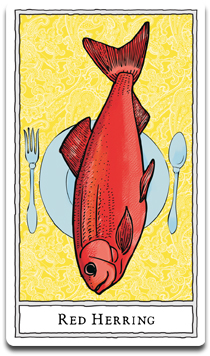 A Red Herring is a distraction used to avoid or derail an argument, often designed to appear logical. It is also the term for a misleading direction in a story.
A Red Herring is a distraction used to avoid or derail an argument, often designed to appear logical. It is also the term for a misleading direction in a story.
Lets say we’re having a discussion about how worthwhile it is to be vegetarian. You say it’s better for the environment, and healthier for you, and doesn’t involve the unethical treatment of animals. Then I say that any distinction between living things is sticky and thus eating any living is equally unethical, additionally ethics are subjective.
If I said this, I would have used a red herring. My argument has nothing to do with how worthwhile it is to be vegetarian. My argument is simply a lame diversionary tactic.
Example:
Sam – “Charlie, why did you steal that banana?”
Charlie – “Stealing is an artificial construct. Everything on the earth belongs to everyone, you just don’t see it.”
Origin:
The origin story goes; While training hunting dogs, hunters would drag a red stinky smoked fish across the scent trail to distract the dogs eventually training them to follow the original scent and ignore competing stronger scents.
As it turns out, references to this practice are red herrings in the other scents er… sense. It turns out , it was a story of distracting hunting dogs that was used only as a device to describe a distracting (and false) report of Napoleon’s defeat in 1807. Hunters did no such thing.
Quinion, Michael (2002–2008). “The Lure of the Red Herring”.World Wide Words.(http://www.worldwidewords.org/articles/herring.htm)

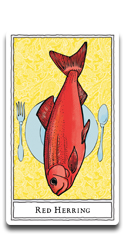
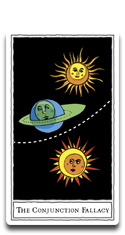
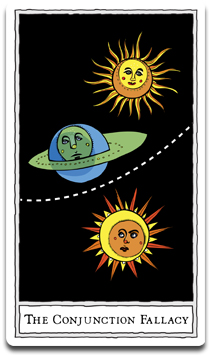 Which is more probable?
Which is more probable?
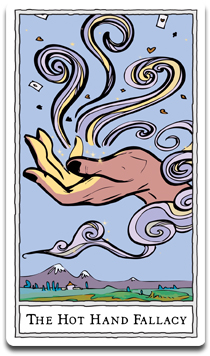 The Hot Hand Fallacy is the assumption that wins or losses in games of chance exist in streaks.
The Hot Hand Fallacy is the assumption that wins or losses in games of chance exist in streaks.
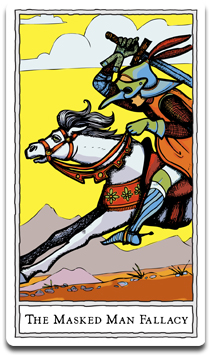 The Masked Man Fallacy is when an
The Masked Man Fallacy is when an